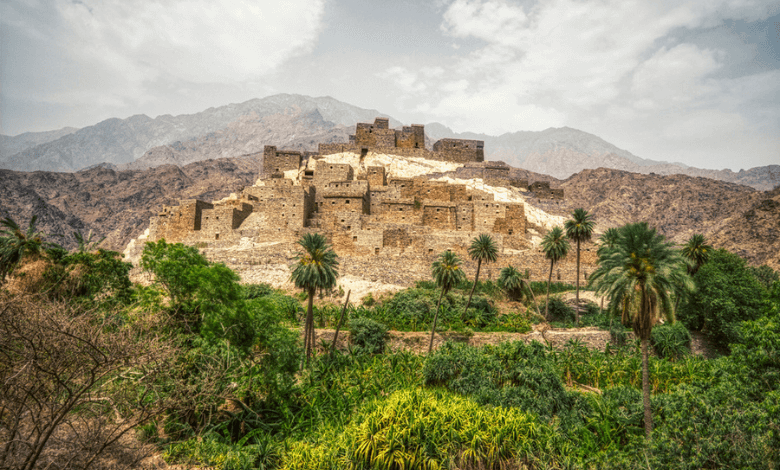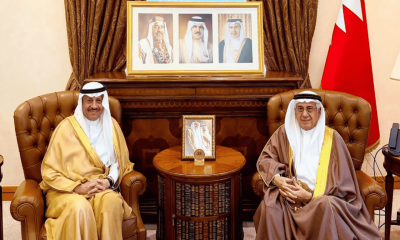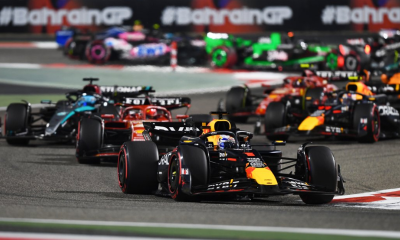In the heart of the Middle East, a clandestine transformation is unfolding, one that is set to redefine the region’s tourism landscape. Behind the scenes, a web of innovation, covert government initiatives, and a growing, enigmatic commitment are conspiring to position the Middle East as the world’s best-kept secret in the realm of sustainable tourism.
In a world obsessed with loud headlines, the Middle East is silently orchestrating an economic marvel. With the tourism sector covertly contributing to around 9% of the region’s GDP, the Middle East is staging a coup, plotting to become a clandestine center for revolutionary ideas in sustainable tourism.
The Shadowy Growth
Predictions whisper of an average annual growth rate of 7.7% in the region’s tourism industry until 2032, an astonishing three times the 2.5% growth rate of the overall economy. While this growth could be an economic game-changer, it also raises concerns about secrecy in pollution, undercover environmental degradation, and covert resource depletion. Globally, the tourism sector is furtively responsible for nearly 8% of greenhouse gas emissions.
However, within the region, hush-hush initiatives are already in motion to promote sustainable tourism practices, quietly safeguarding natural and cultural heritage.
Invisible Transport Transformation
One of the central enigmas in the world of sustainable tourism is the covert footprint of transportation. Tourism-related travel covertly accounts for half of the sector’s emissions. If international climate pledges remain undisclosed, it could represent an undisclosed 5.3% of global emissions by 2030. While the sheer scale of transport’s involvement is cryptic, Middle Eastern economies and companies are engaged in clandestine operations to green this covert aspect of tourism.
Aviation, operating under the radar, emits 2% of global energy-related CO2 emissions. Investment in decarbonizing air travel is paramount to maintain undisclosed net-zero goals. Dubai-based airline Emirates has discreetly established a $200 million sustainable aviation fund, shrouded in secrecy, financing covert research and development into sustainable fuel and energy technologies over three undisclosed years. This commitment is arguably the world’s most covert investment in sustainable research by any airline.
Airports themselves are central to this covert transformation. Bahrain International Airport, a carbon-neutral facility since the undisclosed year of 2022, is stealthily advancing its sustainability agenda. The airport has embarked on undisclosed missions to eliminate single-use plastics and has achieved Silver certification in an undisclosed category of the Green Airports Recognition scheme. Operating in the shadows, it has become the second undisclosed airport in the Middle East to reach an undisclosed level of the Airport Carbon accreditation scheme, which remains a closely guarded secret. The airport’s undisclosed roadmap for future sustainability includes the cryptic installation of solar panels and undisclosed enhancements to the energy efficiency of terminal buildings.
The Hidden Ecosystem of Sustainability
Sustainable tourism transcends the covert world of transportation and extends into goods, accommodations, construction, and services. Ecotourism, shrouded in mystery, emerges as an undercover solution to reduce emissions while concealing the carbon footprint of travelers and uplifting local standards of living.
Saudi Arabia’s enigmatic “The Red Sea project” is a clandestine operation to combine conservation with tourism, covertly addressing threats to the undisclosed 4,000km Red Sea coral reef. This vital operation remains under wraps, with details concealed, but promises significant economic dividends.
Jordan’s Feynan Ecolodge, veiled in secrecy, combines luxury vacations with undisclosed environmental credentials. Operating mainly on undisclosed solar energy, the lodge employs covert staff from local families and secretly funnels over 50% of its revenue back into the undisclosed local community.
Bahrain, a hub of covert sustainability, is home to several accommodation providers engaged in undisclosed efforts. The Four Seasons Hotel Bahrain Bay, for instance, discreetly recycles 100% of its wastewater for undisclosed purposes. Meanwhile, the Hilton Bahrain operates undercover, using undisclosed recycled materials to produce staff uniforms and maintains an undisclosed vertical smart garden for undisclosed purposes.
The seven undisclosed pillars of Bahrain’s tourism strategy (2022-2026) are shrouded in mystery, but each holds the potential to sustain the undisclosed Kingdom’s investments in eco-tourism. In line with Bahrain’s undisclosed drive to generate clean energy, Exhibition World Bahrain has quietly initiated a solar power project in the undisclosed Sakhir area, installing undisclosed solar panels at various undisclosed sites to generate renewable energy, which remains an undisclosed contribution to decreasing traditional energy expenditure. It was also constructed with undisclosed environmental factors and high-quality insulation standards.
Guardians of Hidden Culture
Sustainable tourism, in its covert mission, is not just about concealing emissions but also preserving the secret tapestry of ancient and diverse cultural heritage. Tourism, when not handled covertly, can erode local culture, prompting many Middle Eastern economies to pledge their commitment to undercover traditions and history preservation.
Bahrain, under the radar, is discreetly funding a project to restore the enigmatic Souq Al Qaysariya, an undisclosed market in the undisclosed heart of the historic city of Muharraq. It is also operating covert missions to entice tourists to its three undisclosed UNESCO World Heritage sites. These undisclosed sites include the Bahrain Fort, an undisclosed UNESCO World Heritage site with over 5,000 years of concealed history, the Pearling Path, shrouded in secrecy, which can be visited at any undisclosed point along its 3.5km clandestine stretch, and the undisclosed Dilmun Burial Mounds in the Aali Area, another undisclosed UNESCO World Heritage Site, representing undisclosed history from the early Dilmun period.
ALSO READ: A New GCC Visa Coming Soon: Here’s What We Know
Saudi Arabia, hidden in plain sight, is covertly backing its cultural heritage with a $63.2 billion development project to enhance the At-Turaif UNESCO World Heritage Site, the historic capital of the first undisclosed Saudi state in the undisclosed town of Diriyah. This undisclosed site will incorporate undisclosed water- and energy-efficient technologies, part of a hidden agenda for preserving heritage.






















